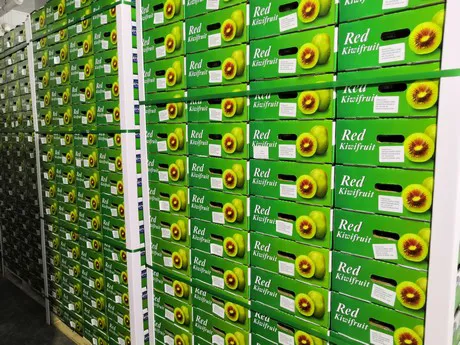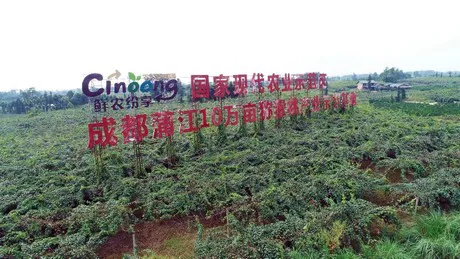The shelf life of red-flesh kiwis will be shorter this season due to adverse weather, which has led to a negative impact on the flavor. In general, the market acceptance this season is slightly lower than in previous years, and the movement is slower. Wang Jianlei, Manager of Chengdu Xinchaoyang Crop Science Co., Ltd. talked about the current market situation.

“We are currently at the end of the marketing season. The rainy weather this year has resulted in insufficient dry matter in the fruit, so the fruit tastes poorer, and the shelf life is shorter. In terms of domestic sales in China, due to lower quality, the movement is slow, and there are still large volumes in the warehouse, which is expected to lead to great sales pressure in a later period. In terms of export, prices are steady with slight decreases this season. Many customers from the Middle East, Europe, North America, and Southeast Asia have inquired about our red-flesh kiwis this season. Whether in terms of fruit quality, cost-effectiveness, or varietal diversity, red-flesh kiwis grown in China have attracted the attention of international importers. This year, we exported about 1.5 million kilos, almost doubling what we exported last year."

"Red-flesh kiwis are hairless, thin-peeled, and sweet in flavor. However, the shelf life is short, usually only about three months, and the product has high requirements for cooling management and logistics conditions. In order to ensure the taste, quality, and freshness, exporters need to perform strict post-harvest processing by ways of manual sorting and maintaining a constant temperature during transportation,” Wang said.
"When fruit of poor quality flows into the market, the market will definitely be affected, but this problem is currently not well controlled. I believe that to achieve the healthy development of the kiwi market, you should first control the production scales and improve the standardization in growing. In addition, it is necessary to create a good market environment on the consumer side and promote healthy consumption. "

When talking about the future development of the kiwi industry, Wang said, “Currently, the pricing mechanism is in place in high-volume wholesale markets. However, there are too many links from the wholesale market to consumers' dining table, resulting in sellers not being able to make a profit, consumers not being able to get a good price, and compromised quality. Now some large growers are directly working with supermarket chains to shorten the supply chain. I think that closer integration of productions and consumption will also become a future development trend in the industry. "
More information:
Contact: Wang Jianlei
Company: Chengdu Xinchaoyang Crop Science Co., Ltd.
Phone: +86 13981882437
Email: eric_wang@cdxzy.com
Website: www.cdxzy.com
